I have two components: Parent, Child.
Here is the scenario:
- Child gets the value from Parent which continue changes
- Child is always updated for the changed value
- Child manipulates the value and displays it
- On the Parent side the value doesn't get changed just becauseof it's manipulated on the Child side
I've tried this with the @Input. Because the @Input value gets manipulated on the Child side, on the Parent side it changes also. This is what I want to prevent, but also still want to keep getting the updated value from the Parent side.
An example code with @Input:
@Component({
selector: 'c-parent',
template: `
<div>{{question.name}}</div>
<button type="button" label="xxx" (click)="changeTheValue()"></button>
<br/>
<c-child [tmpQuestion]="question"></c-child>`
})
export class Parent implements OnInit {
question: Question; // don't get changed from the Child side
ngOnInit() {
question.name = "1";
}
changeTheValue(){
question.name = "2";
}
}
@Component({
selector: 'c-child',
template: `<div>{{tmpQuestion.name}}</div>`
})
export class Child implements OnInit {
@Input() tmpQuestion: Question; // be updated for the changes
ngOnInit() {
tmpQuestion.name = "This is the question: " + question.name; //manipulate the value
}
}
How can I do this with @Input approach or do I need to use something else?
